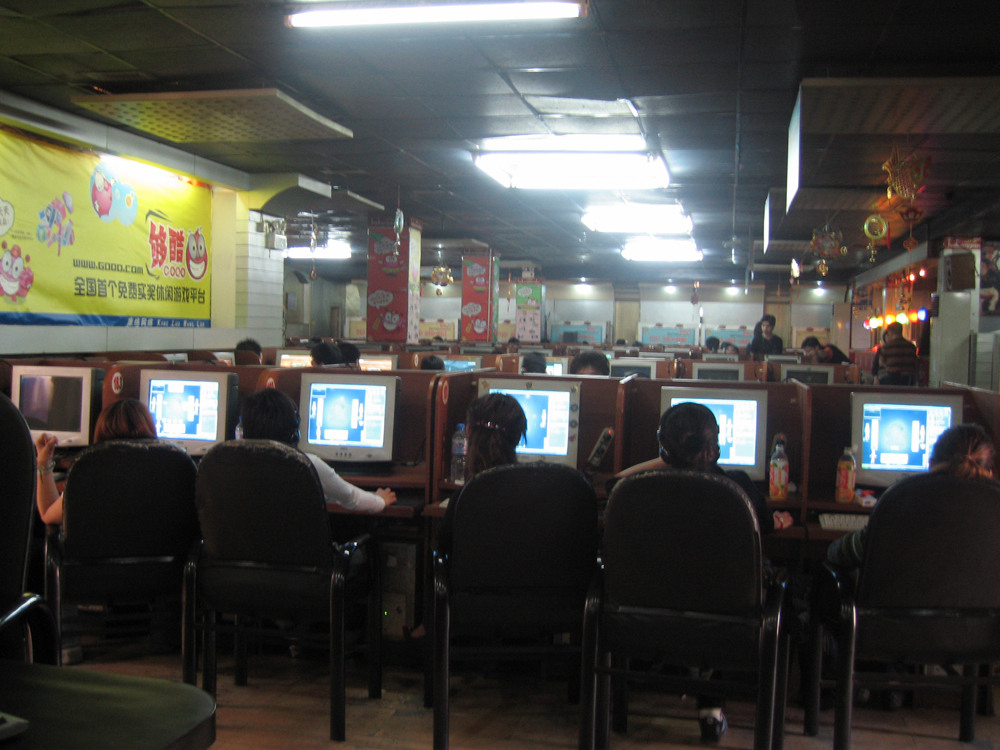| << Chapter < Page | Chapter >> Page > |
While some social scientists predicted that the increase in media forms would create a global village (McLuhan 1964), current research suggests that the public sphere accessing the global village will tend to be rich, Caucasoid, and English-speaking (Jan 2009). As shown by the spring 2011 uprisings throughout the Arab world, technology really does offer a window into the news of the world. For example, here in the United States we saw internet updates of Egyptian events in real time, with people tweeting, posting, and blogging on the ground in Tahirir Square.
Still, there is no question that the exchange of technology from core nations to peripheral and semi-peripheral ones leads to a number of complex issues. For instance, someone using a conflict theorist approach might focus on how much political ideology and cultural colonialism occurs with technological growth. In theory at least, technological innovations are ideology-free; a fiber optic cable is the same in a Muslim country as a secular one, a communist country or a capitalist one. But those who bring technology to less developed nations—whether they are nongovernment organizations, businesses, or governments—usually have an agenda. A functionalist, in contrast, might focus on the ways that technology creates new ways to share information about successful crop-growing programs, or on the economic benefits of opening a new market for cell phone use. Either way, there are cultural and societal assumptions and norms being delivered along with those high-speed wires.
Cultural and ideological bias are not the only risks of media globalization. In addition to the risk of cultural imperialism and the loss of local culture, other problems come with the benefits of a more interconnected globe. One risk is the potential censoring by national governments that let in only the information and media they feel serves their message, as can be seen in China. In addition, core nations such as the United States risk the use of international media such as the internet to circumvent local laws against socially deviant and dangerous behaviors such as gambling, child pornography, and the sex trade. Offshore or international web sites allow U.S. citizens (as well as others) to seek out whatever illegal (in the United States) or illicit information they want, from 24-hour online gambling sites that do not require proof of age, to sites that sell child pornography. These examples illustrate the societal risks of unfettered information flow.

In the United States, the internet is used to access illegal gambling and pornography sites, as well as to research stocks, crowd-source what car to buy, or keep in touch with childhood friends. Can we allow one or more of those activities, while restricting the rest? And who decides what needs restricting? In a country with democratic principles and an underlying belief in free-market capitalism, the answer is decided in the court system. But globally, the questions––and the government’s responses––are very different.
China is in many ways the global poster child for the uncomfortable relationship between internet freedom and government control. A country with a tight rein on the dissemination of information, China has long worked to suppress what it calls “harmful information,” including dissent concerning government politics, dialogue about China’s role in Tibet, or criticism of the government’s handling of events.
With sites like Twitter, Facebook and YouTube blocked in China, the nation’s internet users––some 500 million strong in 2011––turn to local media companies for their needs. Renren.com is China’s answer to Facebook. Perhaps more importantly from a social-change perspective, Sina Weibo is China’s version of Twitter. Microblogging, or weibo , acts like Twitter in that users can post short messages that can be read by their subscribers. And because these services move so quickly and with such wide scope, it is difficult for government overseers to keep up. This tool was used to criticize government response to a deadly rail crash and to protest a chemical plant. It was also credited with the government’s decision to report more accurately on the air pollution in Beijing, which occurred after a high-profile campaign by a well-known property developer (Pierson 2012).
There is no question of China’s authoritarian government ruling over this new form of internet communication. The nation blocks the use of certain terms, such as human rights, and passes new laws that require people to register with their real names, making it more dangerous to criticize government actions. Indeed, 56-year-old microblogger Wang Lihong was recently sentenced to nine months in prison for “stirring up trouble,” as her government described her work helping people with government grievances (Bristow 2011). But the government cannot shut down this flow of information completely. Foreign companies, seeking to engage with the increasingly important Chinese consumer market, have their own accounts: the NBA has more than 5 million followers, and Tom Cruise’s Weibo account boasts almost 3 million followers (Zhang 2011). The government, too, uses Weibo to get its own message across. As 2012 progresses, China’s approach to social media and the freedoms it offers will be watched anxiously––on Sina Weibo and beyond––by the rest of the world.

Notification Switch
Would you like to follow the 'Introduction to sociology' conversation and receive update notifications?